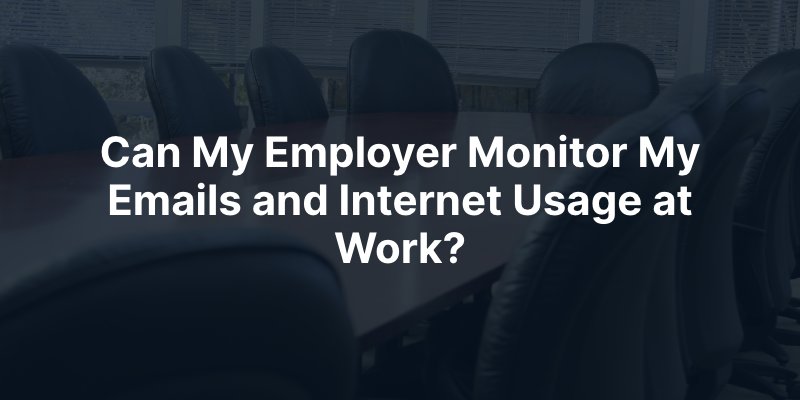In California, employees generally have a reasonable expectation of privacy, even in the workplace. However, this expectation may be diminished when using company-provided resources such as email accounts and work computers.

Employers in California are often required to notify employees if they intend to monitor their electronic communications, for example, in the employee handbook. If an employer explicitly informs employees of monitoring policies and they consent to such monitoring, an employer can scan emails and internet usage at work.
Additionally, employers have the right to monitor electronic communications if there are legitimate business reasons, such as ensuring productivity, preventing harassment, or safeguarding company secrets. The key is for the monitoring to be reasonable and necessary.
Many companies have policies regarding personal use of company resources, which is also often included in the employee handbook. Employees should familiarize themselves with these policies to understand the extent to which personal activities may be monitored.
While employers have a degree of latitude in monitoring, there are limitations. Monitoring activities that are protected by law, such as engaging in concerted activities for mutual aid or protection, may constitute unfair labor practices.
Electronic Communications Privacy Act (ECPA)
Under the ECPA, employers are generally prohibited from intercepting private communications, but there are exceptions, especially if the employer has a legitimate business purpose.
Employers often do use various methods to monitor employees’ emails and internet usage. The specific techniques can depend on company policies, but here are some common methods:
Content Filtering Software
Employers may use content filtering software to scan the content of emails for specific keywords, phrases, or attachments. This helps identify and filter out emails that may violate company policies or contain sensitive information. Employers may also block access to specific websites.
Automated Monitoring Systems
Automated monitoring systems can analyze patterns of communication, flagging unusual or potentially problematic email behavior. These systems may focus on factors such as the volume of emails sent, frequency of communication with certain contacts, attachments, or the use of specific language.
Logging and Auditing
Employers may implement logging and auditing systems that record details about email communications and track websites and online services accessed by employees. This includes information such as sender and recipient addresses, timestamps, the content of emails, websites visited, internet search terms, etc. These logs can be reviewed for compliance, security, or investigative purposes.
First and foremost, familiarize yourself with the organization’s acceptable use policies regarding email and internet usage. Refrain from accessing inappropriate or non-work-related websites during working hours, and be mindful of the content shared in emails to ensure it aligns with professional standards. Avoid using company email for personal matters, especially sensitive or confidential information. Stay informed about updates to company policies, and seek clarification from the IT or HR department if uncertain about any guidelines. If you must check your private email account, try to only do it during a break and on your own device. Contact an Orange County wrongful termination lawyer in the vent that private information was held again you.